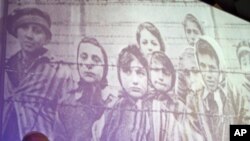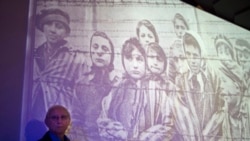In the spring of 1943, German troops and police entered the Jewish ghetto in Warsaw, Poland, intent on deporting its inhabitants to concentration camps.While the residents rose up and fought back for nearly a month, ultimately, the uprising was broken. Even though few of the ghetto’s inhabitants survived the Second World War, the Warsaw Uprising became a symbol of resistance to the Nazi killing machine. The date was April 19th, which corresponds to the 27th day of Nisan on the Hebrew calendar, and this year falls on May 5th.
Today, this day is observed as “Yom HaShoah,” or “Day of Remembrance” of the victims of the Holocaust.
The Holocaust was one of humanity’s darkest moments. Six million Jews were murdered by the Nazi regime and its collaborators - solely because they were Jewish.
It started in the 1930s, when the Nazi Party came to power and the German Government began to target those it deemed to be inherently inferior — mostly Jews, but also Roma, the disabled, homosexuals and Slavs. They also targeted Communists, Socialists, Freemasons, and Jehovah’s Witnesses.
The victims, mostly civilians, were rounded up, shut into ghettos, and deported to dozens of concentration or slave labor camps. Some were shot and dumped into mass graves. By 1941, a number of camps existed specifically for mass killing. Those sent to slave labor camps were slowly starved and worked to death.
In the aftermath of the Second World War, the international community resolved never again to allow such atrocities to occur. In 1948, the United Nations General Assembly adopted the Convention on the Prevention and Punishment of the Crime of Genocide.
The legacy of Holocaust victims enriches our understanding and is a symbol of the meaning of human dignity. In America, survivors remind us of the importance of tolerance by speaking in classrooms and community institutions across the country. They serve as living history – sharing their stories and recounting the experiences of all who perished.
Poet Claire Guest writes, “We couldn’t stop the horror,/ We couldn’t stop the hate,/ We can’t change this history;/ We are here too late – / But what we can do is remember,/ In our thoughts and in our ways,/ Let these memories guide our actions.”

















